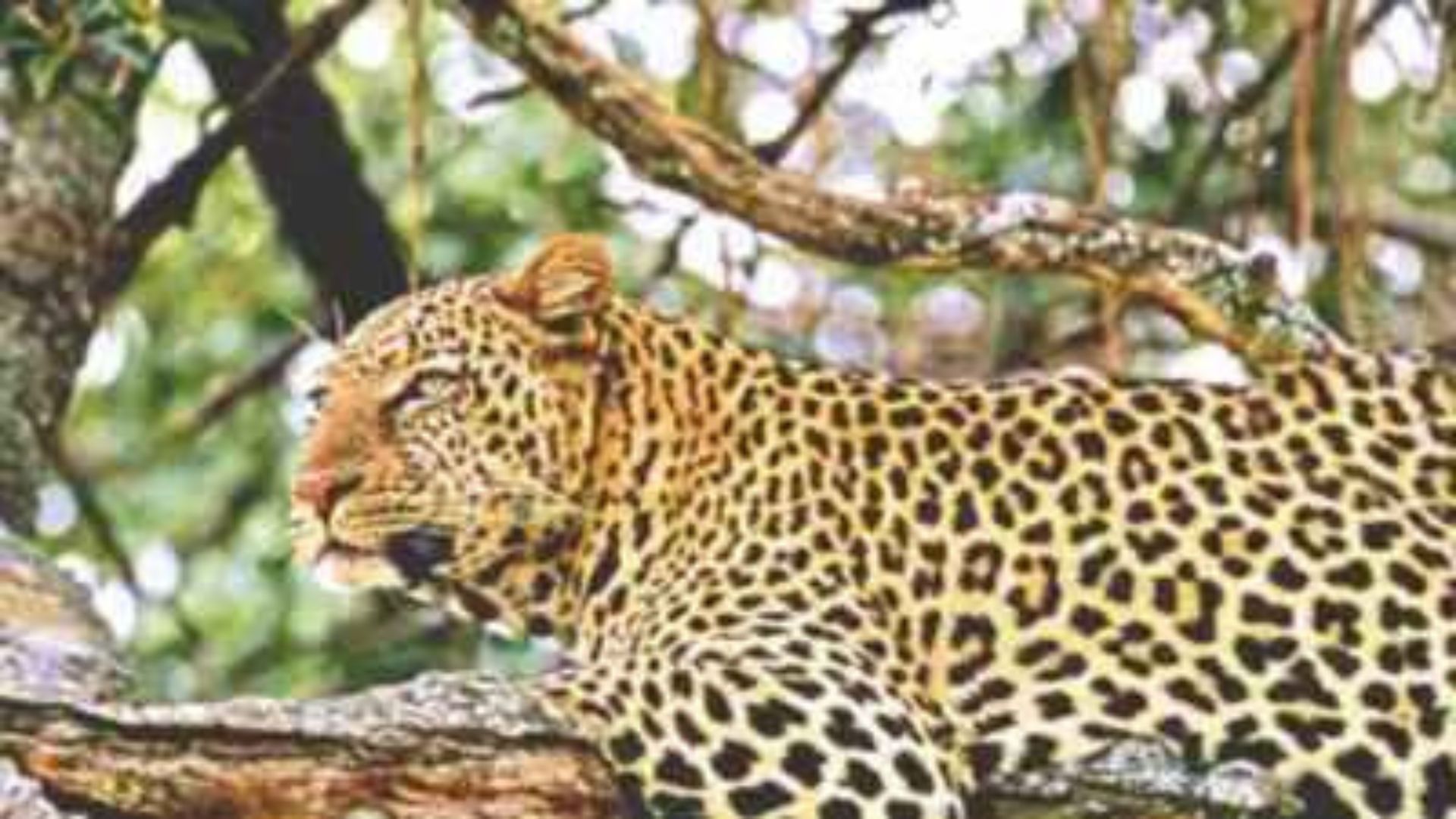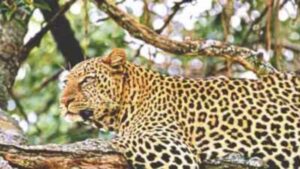In an extraordinary discovery, a leopard with heterochromia iridum—a rare condition where each eye is a different color—has been photographed in the Bandipur Tiger Reserve, Karnataka. Wildlife photographer Dhruv Patil, a member of the Karnataka State Wildlife Board, captured this remarkable sight during a safari in the reserve.
Patil spotted the old female leopard perched on a tree and took several photos. Upon reviewing the images, he noticed the leopard’s unusual eye coloration: one eye was bluish-green, while the other was brown. This rare genetic mutation, known as heterochromia iridum, had not previously been documented in big cats in India.
IAS officer Supriya Sahu, known for sharing wildlife facts and updates on social media, posted the photograph on X (formerly Twitter) on Saturday. She described the leopard’s eyes as “hypnotic” and praised Patil’s capture as a “brilliant” documentation of a rare condition.
Beware ! The eyes of this leapord will hypnotise you. In a first documentation of its kind in India, a leopard with two different coloured eyes has been photographed in Bandipur Tiger Reserve by Dhruv Patil. How incredible ! Heterochromia Iridium is a very rare genetic mutation… pic.twitter.com/cR1i9VAa6u
— Supriya Sahu IAS (@supriyasahuias) August 3, 2024
Heterochromia iridum can be categorized into three types:
- Complete heterochromia: One iris is a different color from the other.
- Partial heterochromia: A segment of one iris differs in color from the rest.
- Central heterochromia: The inner part of the iris has a different color compared to the outer area.
The photograph quickly gained attention online, with reactions ranging from admiration for its rarity to appreciation for Patil’s skill. “Very intense,” commented one user, while another remarked on the rarity of the capture and the skill of the photographer.
Beware ! The eyes of this leapord will hypnotise you. In a first documentation of its kind in India, a leopard with two different coloured eyes has been photographed in Bandipur Tiger Reserve by Dhruv Patil. How incredible ! Heterochromia Iridium is a very rare genetic mutation… pic.twitter.com/cR1i9VAa6u
— Supriya Sahu IAS (@supriyasahuias) August 3, 2024
Patil expressed his excitement at documenting such a rare genetic trait in elusive wildlife. His previous notable work includes capturing a black panther at the Kabini Wildlife Sanctuary. He reportedly dedicated over 150 hours to photographing the panther, underscoring his commitment to wildlife photography.














